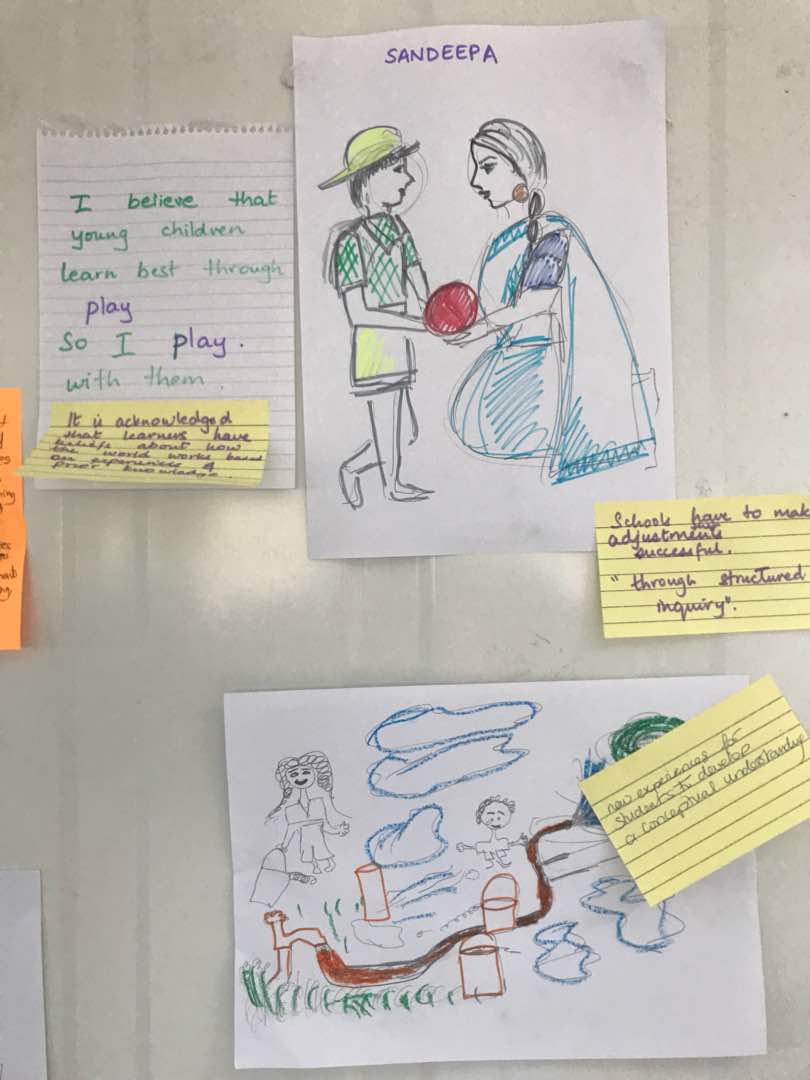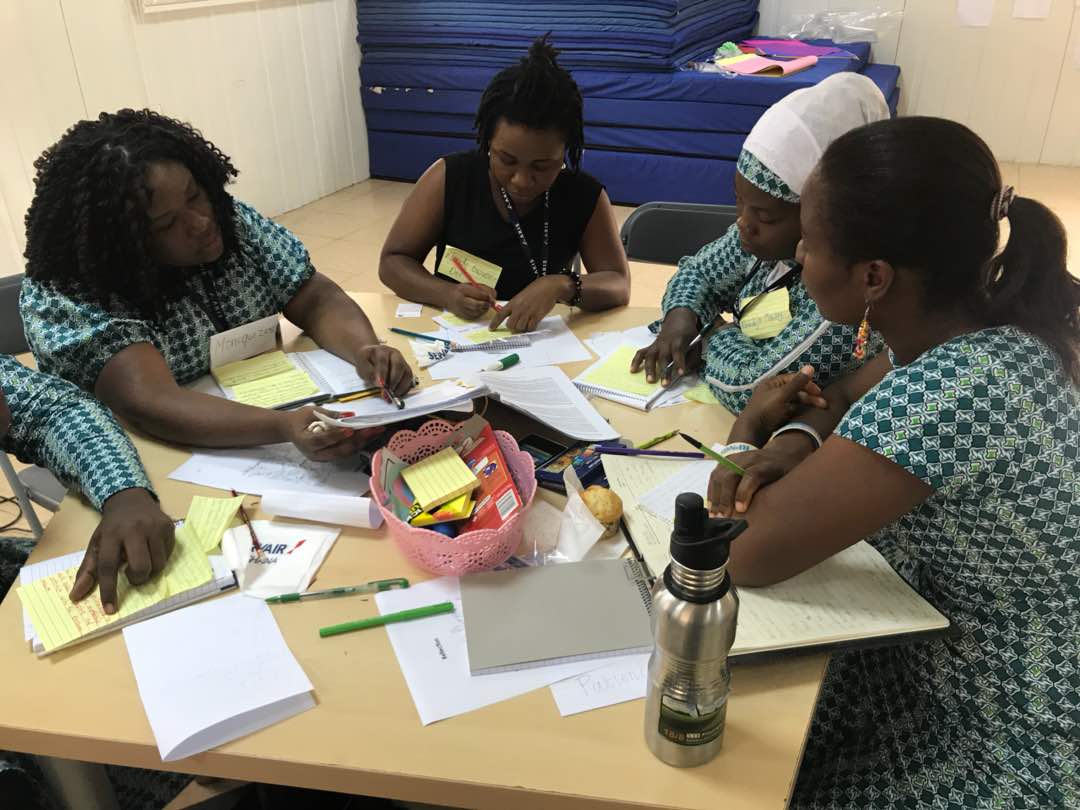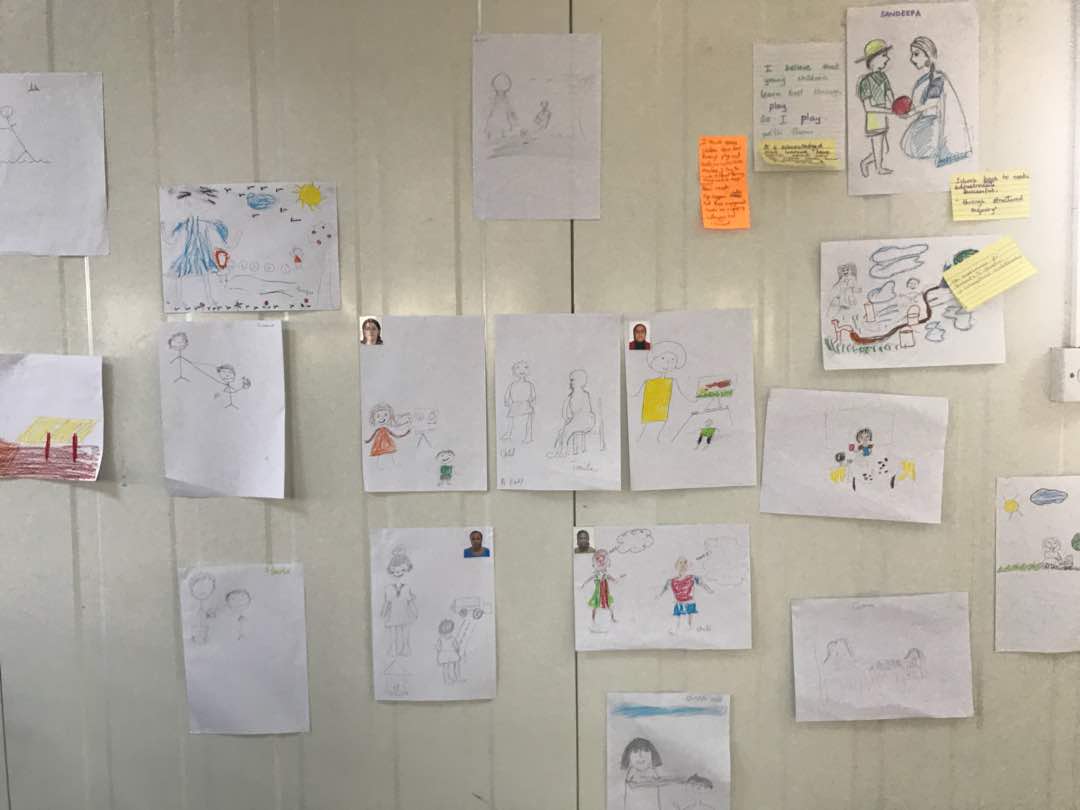


How do young children learn best? Learning of this day and age is universal; children and adults of all ages are considered as learners; ‘Life-long Learners’ to be exact. At Al-Rayan International School, the recognition of the formative years and the vitality of physical, social and emotional development in those years are vital. Thus, educating children at an early age is a niche in itself in the IB PYP Program.
On the 23rd and 24th of February, a training workshop for Early Childhood Education for the ages of 3 to 5 years old was held for the Early Years Program Facilitators at ARIS Primary School. This was held across 8 sessions that ranged from the concept of ‘Play vs Inquiry’ in examining how young children learn best to Environments for Learning to Language and Math skills development to Real world applications of this kind of a learning experience.
No stone was unturned in the sessions conducted. The PYP Program relying entirely on the backbone that is Units of Inquiry, one of the sessions was on the various interpretations of inquiry and how to construct meaning and understanding of it. Another session along the lines of the various interpretations of inquiry also had to do with – the various environments for learning, with importance to structured and purposeful inquiry as open-ended & democratic, and the approach of play based learning to inquire about the world around them.
Taking into consideration that the focus is on the early years, focus shifted to the introspection of teachers to be the ones to provide this environment for the children to learn, not as a top-down teaching approach, but instead as a facilitator and a fellow learner. Learn from what and how the children learn and learn from collaboration.
With a program such as the IB, the aim is to ultimately develop children and young adults to be global citizens. Units of Inquiry in the PYP also propel an importance of Language skills and Mathematics skills, which are universal around the world.
Lastly, a session on Assessment was conducted. From what I remember at school, Assessment was based on tests, examinations and occasionally, a few presentations. In an Inquiry based learning process, assessment processes are tailored with specific purposes with appropriate tools and strategies that make sure to be encouraging and meaningful to early years learning process, through documenting. Learners should be engaged in a process that requires them to apply concepts and skills into real world situations, and assessments should thereby be done accordingly.
As the workshop neared to its closing, the overlying message was to – Collaborate, Plan and Reflect. In an evolving world, learning should also evolve as to share ideas and reflect on experiences to develop new learning methods, new assessments and new forms of engagements. This is of course accompanied with the unsaid rule of putting it into an action plan and executing it, as ARIS Primary faculty does so in a day to day basis, tirelessly.